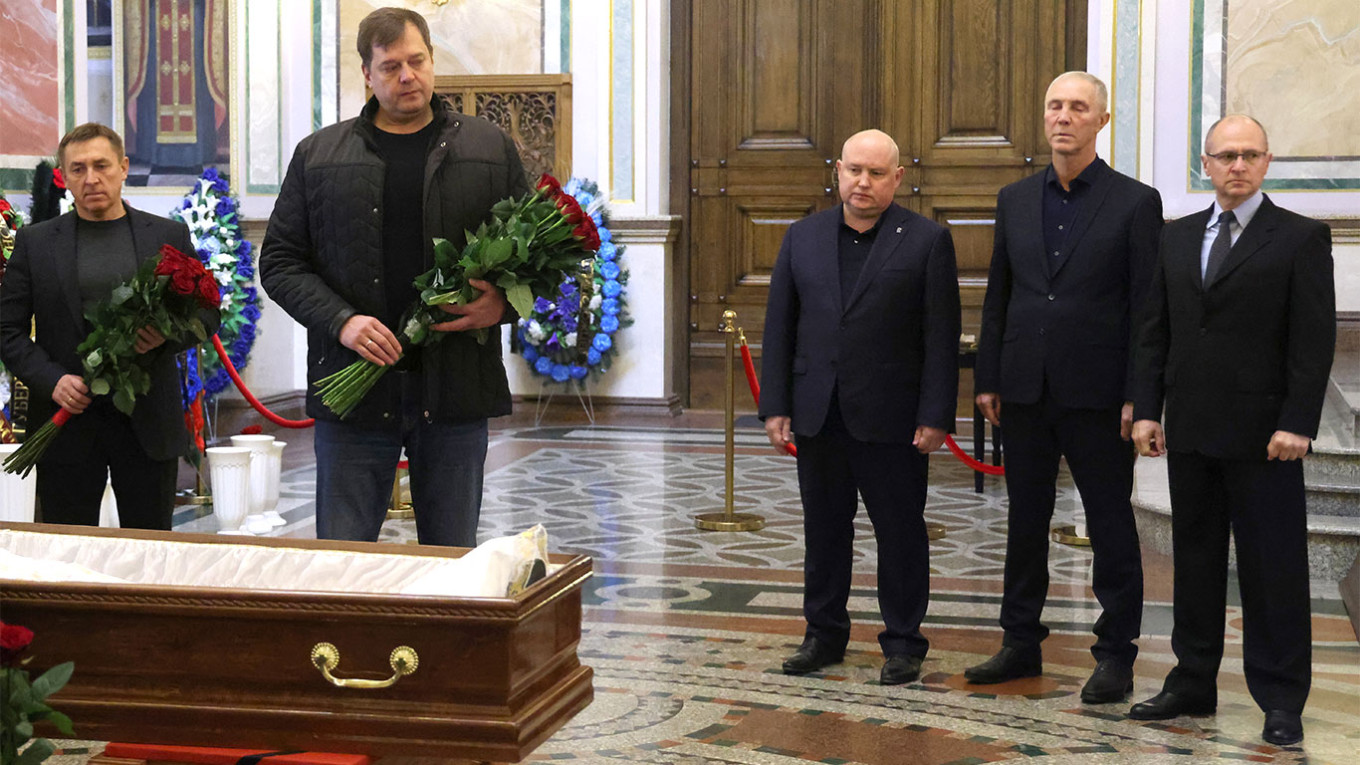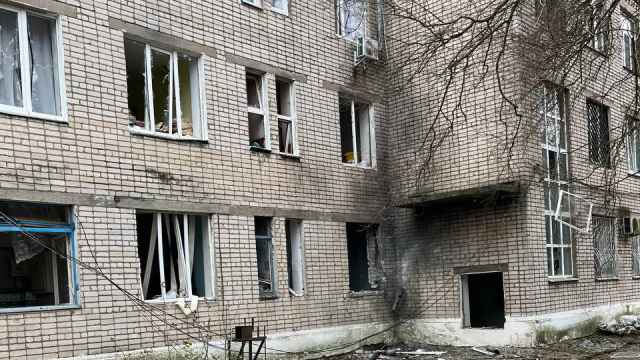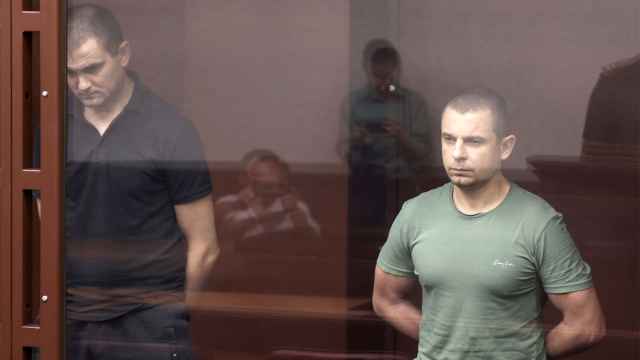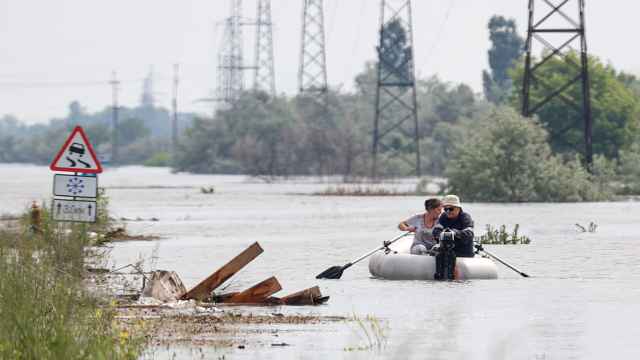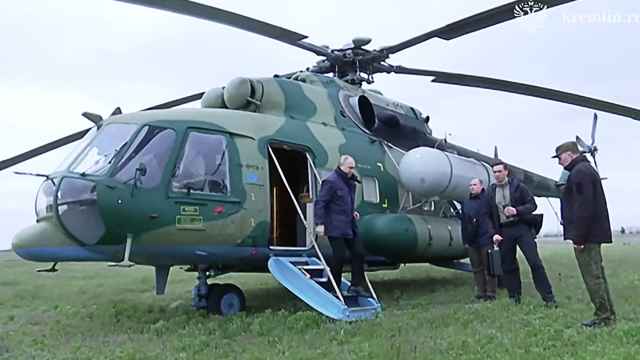Kirill Stremousov, the deputy head of the Moscow-installed administration in the occupied Kherson region of Ukraine, was buried in the Crimean city of Sevastopol on Friday, state-run news agency RIA Novosti reported.
Stremousov, 45, died in an apparent car accident near the town of Henichesk on Wednesday, according to local officials.
The funeral ceremony was attended by the Kremlin's first deputy chief of staff, Sergei Kiriyenko; the Russian-appointed governors of the Kherson and Zaporizhzhia regions, Vladimir Saldo and Yevgeny Balitsky; and the head of Russian-annexed Crimea, Sergei Aksyonov.
Stremousov is the most senior Russian-appointed official in occupied Ukraine to die since the start of the invasion. Known for being an anti-vaxxer before the war, he enthusiastically welcomed the arrival of Russian forces in Kherson in March.
"His main task was to serve the people, serve his country, his city. He walked the path of service honestly to the very end," Kirienko said at the funeral ceremony.
Known for his extreme anti-Ukrainian rhetoric, Stremousov was one of a group of officials that the Kremlin had instructed state-run media outlets to quote less frequently just days before his death, independent media outlet Meduza reported.
Last month Stremousov openly criticized Russia’s Defense Ministry and its actions in Kherson in a Telegram post, condemning the country's "mediocre military leaders."
As the deputy head of the pro-Russian Kherson administration, Stremousov was involved in the holding of a referendum on whether the region should join the Russian Federation in September.
The referendum, in which joining Russia was backed by some 87% of those who voted, was widely-criticized as a "sham" by the international community.
A Message from The Moscow Times:
Dear readers,
We are facing unprecedented challenges. Russia's Prosecutor General's Office has designated The Moscow Times as an "undesirable" organization, criminalizing our work and putting our staff at risk of prosecution. This follows our earlier unjust labeling as a "foreign agent."
These actions are direct attempts to silence independent journalism in Russia. The authorities claim our work "discredits the decisions of the Russian leadership." We see things differently: we strive to provide accurate, unbiased reporting on Russia.
We, the journalists of The Moscow Times, refuse to be silenced. But to continue our work, we need your help.
Your support, no matter how small, makes a world of difference. If you can, please support us monthly starting from just $2. It's quick to set up, and every contribution makes a significant impact.
By supporting The Moscow Times, you're defending open, independent journalism in the face of repression. Thank you for standing with us.
Remind me later.


